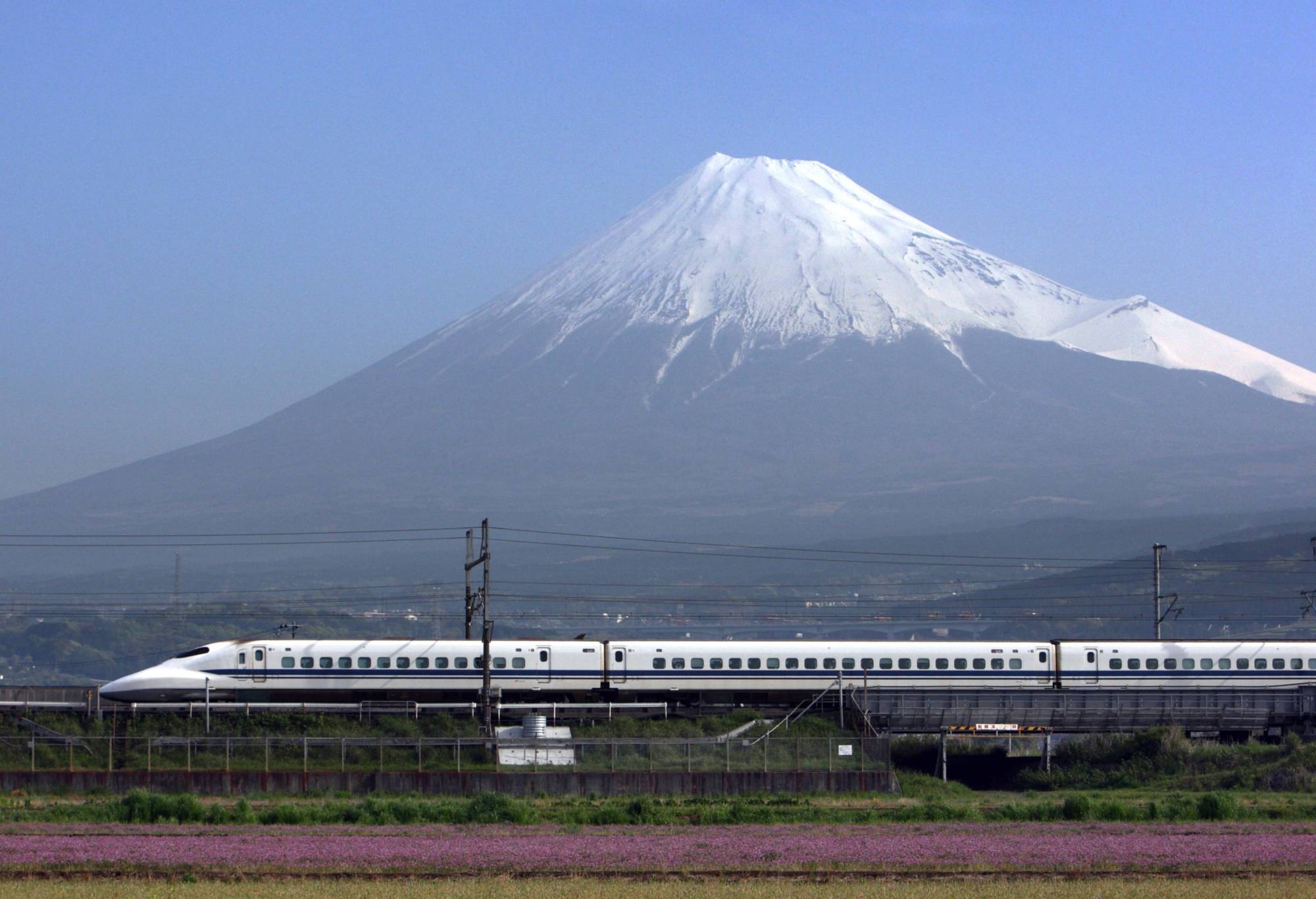In the world of the movie "Bullet Train,” which recently opened in U.S. theaters, Brad Pitt is an assassin in a hyperstylized, neon-tinged Japan; Sandra Bullock and Puerto Rican pop sensation Bad Bunny also appear.
But forget them: The real star should be the train. A staple set for any movie that takes place in Japan, from "Lost In Translation” to "Inception,” it’s about time the shinkansen itself got top billing. Based on a novel by Japanese mystery writer Kotaro Isaka, "Bullet Train” shows the enduring obsession with Japan’s ultraefficient and superfast trains, nearly 60 years since their introduction.
Famously, there has never been a fatal accident — not even when a shinkansen derailed earlier this year after a magnitude 7.4 earthquake. But these are tricky times for what is perhaps the world’s most famous train. The pandemic has altered lifestyles in Japan in a way that might be permanent; Zoom calls are increasingly taking the place of the business day-trips that are the backbone of bullet-train revenues and foreign tourists remain largely absent.



















With your current subscription plan you can comment on stories. However, before writing your first comment, please create a display name in the Profile section of your subscriber account page.